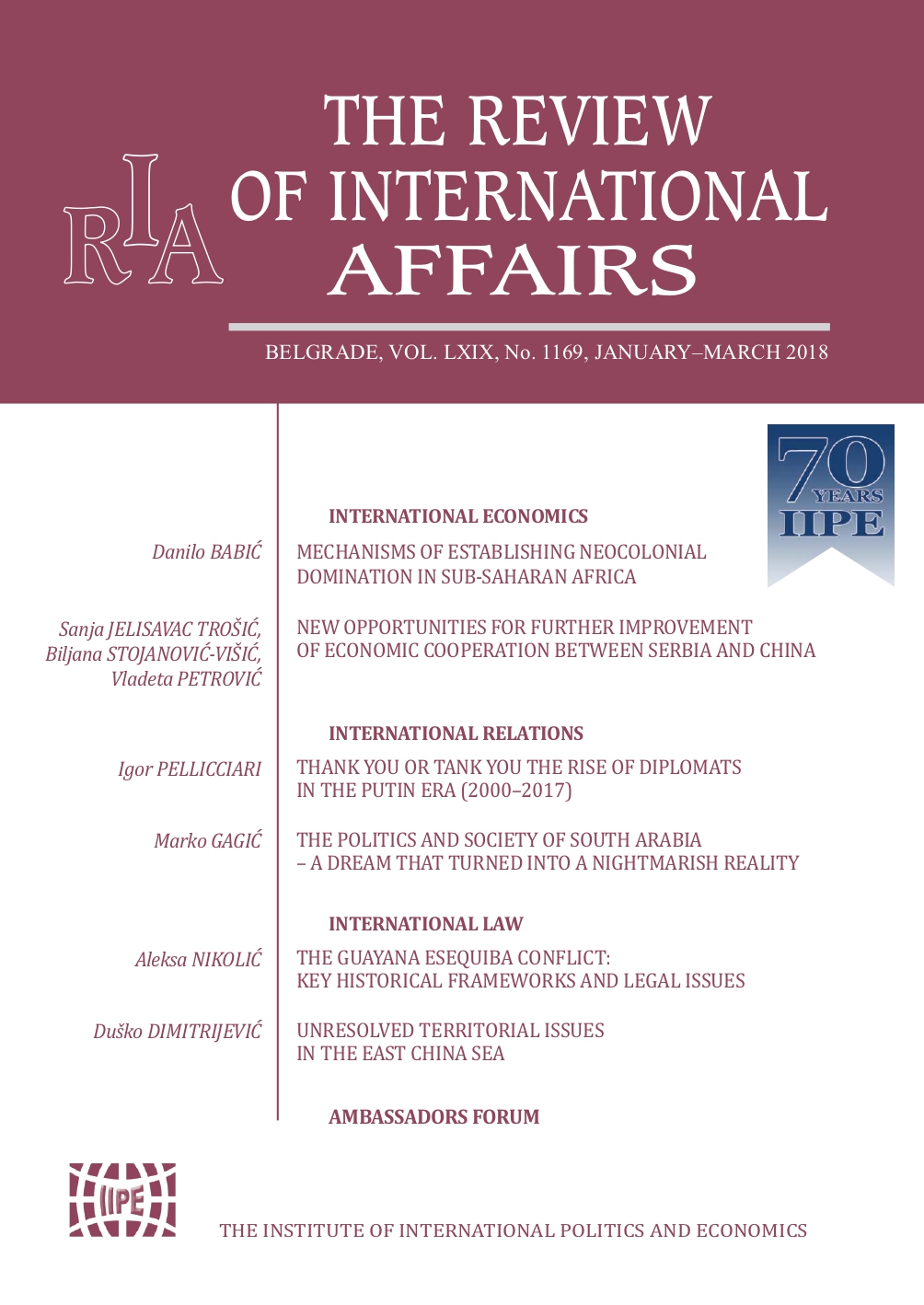The Guyana Esequiba conflict: key historical frameworks and legal issues
The Guyana Esequiba conflict: key historical frameworks and legal issues
Author(s): Aleksa NikolićSubject(s): Law, Constitution, Jurisprudence
Published by: Институт за међународну политику и привреду
Keywords: Guyana Esequiba; Venezuela; Great Britain; The Arbitral Award of Paris; Geneva Agreement
Summary/Abstract: For many centuries South America was a place of great powers clash. After decolonization, many South American states established the uti possidetis principle based on which they grounded their frontiers. The case of Guyana Essequibo is an example of breaking this principle and international law. The question of Guyana Esequiba is the subject of a territorial dispute between Great Britain and British Guiana on one side, and Venezuela on another. In this regard, this work is divided into four chapters. In the introduction author deals with historical issues related to this territory, or analysis of the uti possidetis principle implementation. In the second chapter are emphasised the British claims to this territory expressed through the introduction of so-called Schomburgk line. The third chapter deals with the legal analysis of The Arbitral Award of Paris. The author points out that it was a crucial political argument rather than a legal one. The fourth chapter analyses the Geneva Agreement, or its non-implementation. At the end, the author emphasises the important role of multinational corporations for (un)solving of this problem.
Journal: The Review of International Affairs
- Issue Year: LXIX/2018
- Issue No: 1169
- Page Range: 70-82
- Page Count: 13
- Language: English

